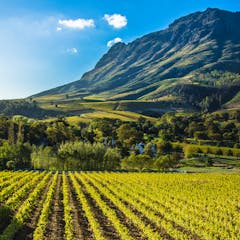
Articles on land reform
Displaying 1 - 20 of 74 articles

Almost 25% of all farmland previously owned by white landowners has been restored, redistributed to black South Africans, or moved away to state ownership.

The South African government must act on the ineffective and politics-ridden system of land leases and ensure that beneficiaries are getting secure land rights.

The government’s approach to redistributing farmland has been mostly ineffective. Failure can be attributed to limited implementation, poor institutional capacity and corruption.

Despite its vagueness, the RET has become central to the contemporary ANC. It is destined to remain a powerful bloc within the party, and a constant constraint on Ramaphosa leadership.

Based on official statistics, we conclude that the country has made more progress towards land reform than is generally suggested.

Policies, if implemented, would drive the agricultural sector’s growth in ways that would benefit all.

Land reform had not been held back by the constitution but by capacity constraints and a lack of political will.

The 2021 election will define for citizens important aspects of South Africa’s political future. What is the governing ANC’s future, and what was the impact of President Ramaphosa on this election?

Zimbabwe’s 2021 bumper harvest is a welcome development but, it’s important to know what’s behind this success and what challenges remain.

An agency could accelerate land reform by removing the process from political and bureaucratic control.

The judgment highlights the lack of interest by successive government ministers in curtailing the self-interested actions of rural elites.

In the country’s insider politics, the majority who try to survive outside the formal economy are talked about, but are never heard.

The legitimacy of SWAPO, the former liberation movement that has governed since 1990, has been eroded amid growing corruption and a deepening economic crisis.

Nyachae always served at the intersection of politics and administration. Nevertheless, he was more of a firm manager than a politician.

The proposed new law has a long history. The country has been trying for almost 12 years now to come up with expropriation legislation that is in line with the constitution.

The new initiative reproduces the core weaknesses of post-apartheid state land and agricultural policy. These have done little to improve the livelihoods of the poor.

South Africa’s that current land reform strategies focus too narrowly on agricultural outcomes and transferred ownership - this undermines equitable and sustainable land reform.

Zimbabwe wants to issue a sovereign bond to raise $3.5 billion it has agreed to pay as compensation to white farmers, but the economic and political conditions aren’t conducive to such an issuance.

When South Africa eventually emerges from the fog of the COVID-19 crisis, structural reform, including land reform, will be high on the political agenda as never before.

The current lockdown in Zimbabwe is going to provide a stern test for its informal economy, which is the country’s dominant economy and employs 90% of people.
